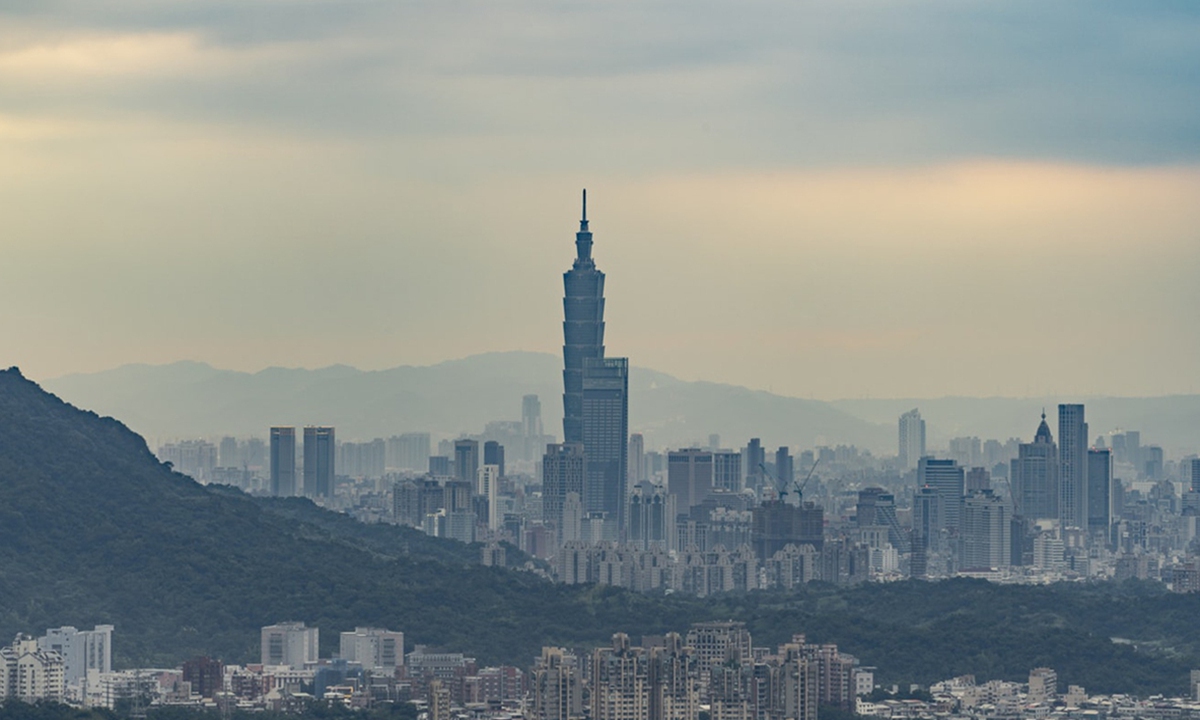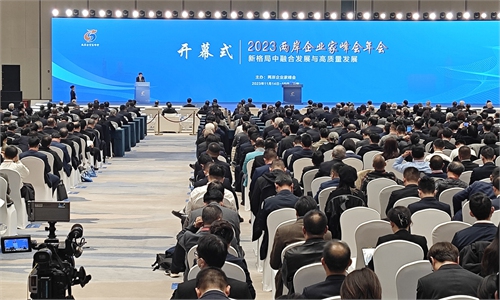
A view of the Taipei city, Taiwan island Photo: Unsplash
Candidates of different political parties in the island of Taiwan are able to register with the regional leader election commission from Monday to Friday, with the secessionist Democratic Progressive Party (DPP) candidate formally announcing his running mate while opposition parties including the Kuomintang (KMT) and the Taiwan People's Party are struggling over whether to work together or run in the election separately.
DPP candidate Lai Ching-te, who is also the deputy regional leader of the island, formally announced Hsiao Bi-khim, the island of Taiwan's representative in the US, and a diehard separatist sanctioned by the Chinese mainland, as his running mate.
This has once again proven that the DPP is a secessionist party that has absolutely no sincerity in fixing cross-Straits relations, which it seriously damaged, the experts said, and will keep playing the card of "Taiwan independence" in the regional election, and its provocative and aggressive stance toward the mainland and reunification will be further intensified, said the experts.
The Chinese mainland will hold no illusion toward this group of secessionists, and if the DPP wins the regional election next year, cross-Straits relations and the security situation in the Taiwan Straits will definitely face new challenges and danger, and considering the lack of unity among the opposition parties, a new round of threats from Taiwan secessionism is highly likely to emerge, said experts.
According to the Xinhua News Agency on April 7, a spokesperson for the Taiwan Work Office of the Communist Party of China (CPC) Central Committee announced sanction measures against diehard "Taiwan independence" separatist Hsiao.
The spokesperson said Hsiao solicited foreign help and sought US support for the independence agenda to intentionally provoke confrontations across the Taiwan Strait and undermine cross-Strait peace and stability, further exposing her diehard nature of seeking "Taiwan independence."
The mainland decided to impose further sanction measures on Hsiao, strictly banning her and her family members from entering the mainland and the special administrative regions of Hong Kong and Macao, and also banning her financial sponsors and related businesses from cooperating with mainland organizations and individuals. All other necessary punitive measures will be taken to ensure lifelong accountability according to law, said the spokesperson.
The opposition parties KMT and the Taiwan People's Party have still not reached agreement on how to form an alliance to compete with the DPP, with some experts saying that according to polls conducted by various institutions on the island, the two opposition parties face certain defeat if they run separately, which is why the future of cross-Straits relations is facing great risks.
Li Fei, a professor at the Taiwan Research Center at Xiamen University, told the Global Times on Monday that the Chinese mainland has no interest in intervening in the regional election, as the mainland has never attached hope on any single party for realizing reunification, as none of those politicians are fully reliable, and the mainland can only count on its own strength and capability.
No matter who wins the election next year, the mainland will keep pushing the reunification process in different ways. On the one hand, the mainland will release more resources to directly benefit Taiwan compatriots allowing them to share its development; on the other hand, it will continuing strengthening its military might to deter secessionists and foreign forces that interfere in cross-Straits affairs, and be prepared for a worst case scenario, experts said.
"The more powerful we are, the more hope there is for peaceful reunification. When we have an overwhelming advantage in military, politics, sci-tech and economy, the time for us to reunify the island will be ripe, and those secessionists and US politicians might abandon their attempts to resist our goal of reunification," said a Beijing-based expert on the Taiwan question who asked for anonymity.


